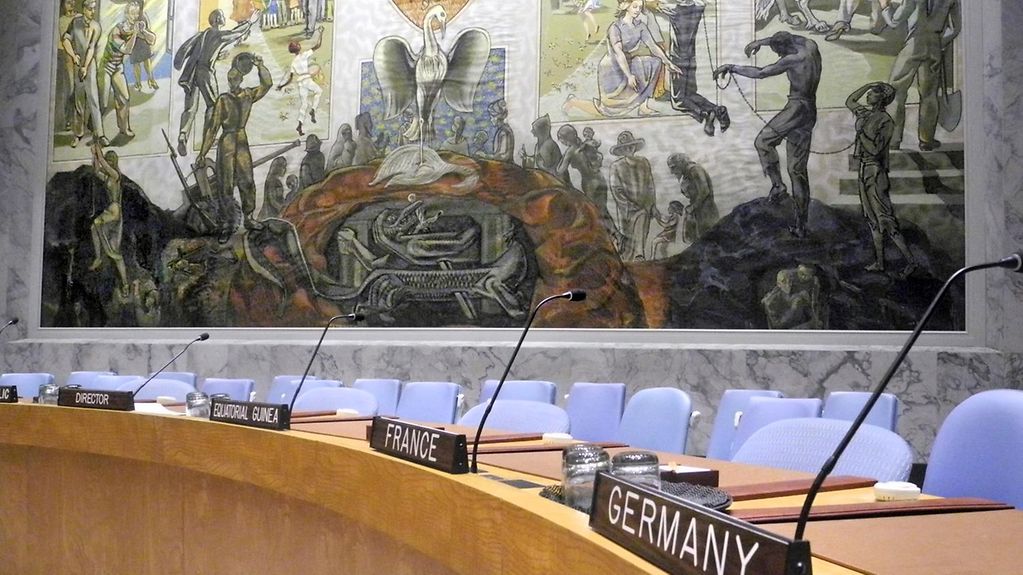International cooperation
On 1 July 2020, Germany assumed the Presidency of the United Nations Security Council for one month. The Security Council is the most important UN body. In a report adopted by the Cabinet, the German government provides information about Germany’s engagement within the international community over the period 2018/2019.
2 min reading time

Germany has a seat on the United Nations Security Council in 2019 and 2020.
Photo: Johannes Schmitt-Tegge/picture alliance/dpa
Protecting and strengthening the rules-based international order and the principle of multilateral cooperation are the priorities of Germany’s policy in the United Nations. Over the last two years, the UN Security Council has been the focus. In June 2018, 184 states elected the Federal Republic of Germany to the Security Council for 2019 and 2020. As of 1 July 2020 Germany again holds the presidency of this body.
Crisis prevention in the Security Council
Addressing existing crises and armed conflicts such as those in Syria and Libya is a fundamental purpose of the Security Council. While it holds the presidency, Germany has a particular role to play here. In addition, the German government intends to use its membership of the Security Council in particular to ensure that the discussion embraces preventive measures and peace-keeping options.
The aim is for the Security Council to move away from only crisis management to conflict prevention. A forward-looking view of issues that offer a great deal of potential for conflicts, such as the environment and climate, are at the heart of crisis prevention and part of the German "brand" inside the UN.
Interest in a strong United Nations
The report underlines the fact that Germany is interested in a strong United Nations and that collaboration within the international community is a major element in Germany’s foreign policy. The Federal Republic of Germany has helped shape the work of the UN and the individual organisations and institutions that make up the UN system in every important sector.
This intensive involvement of the Federal Republic of Germany grows from the country’s historical and political commitment to work for multilateralism, non-violence and humanitarian assistance. In 2018 and 2019, Germany thus made it its job inside the United Nations to strengthen the international order and multilateral cooperation.
A common European voice
Although the Security Council is still blocked on a whole series of issues, under Germany’s co-leadership significant progress has been made in the field of international peace. It has, for instance, proved possible to extend the mandate of the peace mission in Sudan by twelve months and to facilitate cross-border humanitarian aid in Syria. In addition, Germany has stood by its resolution to speak with a common European voice: EU member states have presented their common stance with new joint meetings with the press.
UN reform remains key concern
The current COVID-19 crisis demonstrates how important it is to have a properly functioning multilateral system. To ensure that it remains able to act even as major powers compete, Germany and its G4 partners (India, Brazil, Japan) continue to exert pressure to reform the Security Council.
You will find more information here:
Germany in the United Nations
Franco-German cooperation within the UN Security Council
Permanent Mission of the Federal Republic of Germany to the United Nations
United Nations Association of Germany
Publication: ABC der Vereinten Nationen